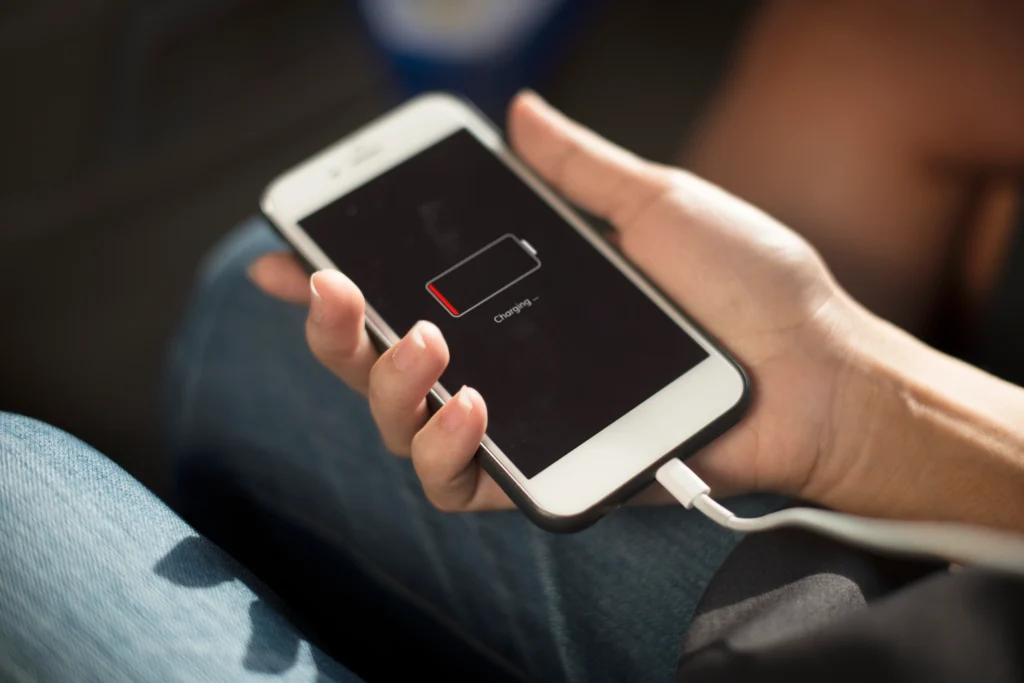How to Tell If Your Phone Is Tapped: 7 Warning Signs
Has this ever happened to you? You’re on an important call when suddenly you hear strange clicks and echoes in the background. The call gets choppy and eventually drops completely. You call back but the issues persist. Annoying right? Well those interruptions could indicate a much bigger problem – someone illegally tapped your phone!
Phone tapping refers to unauthorized surveillance of your conversations and data by intercepting your cellular or landline signal. Unfortunately tapping a phone happens more often than you’d think.
From corporate espionage to suspicious spouses, various groups have motivation to monitor and record your private talks. And with today’s technology, bugging a smartphone doesn’t take James Bond…any amateur hacker can do it pretty easily!
So how do you know if your phone is tapped? I’ll outline the 7 biggest warning signs so you can take action if your smartphone security is breached:
1. You Hear Clicks, Echoes, or Other Background Noises
The most obvious red flag is hearing strange ambient sounds when you’re on phone calls:
- Clicking or beeping
- Echoes
- Dead air/unusual silence
- Whistling
Phone tapping technology intercepts your call transmission signal and can introduce artifacts through the recording, surveillance, and retransmission process.
So pay attention during conversations – minor environmental disturbances like street sounds are normal but repetitive robotic noises indicate third-party interception.
| Type of Background Noise | Indication of Tapping |
|---|---|
| Clicking | Likely |
| Expected Environment (street, wind etc) | Unlikely |
2. Your Phone Battery Gets Hot When Not in Use
Does your phone feel uncomfortably warm when untouched and idle for hours? That thermal buildup suggests background processes straining the battery.
Potential root causes:
- Constant high-resource recording, analytic logging, and data transmission related to surveillance software
- Cryptocurrency coin mining hidden in certain bugging apps
Check your battery usage levels – a bugged phone typically drains quicker and runs hotter trying to support clandestine activities in the background.
3. You Experience a High Volume of Dropped Calls
Does your signal unexpectedly drop multiple times during conversations despite strong cellular reception?
The external interception equipment used to eavesdrop on calls can partially obstruct or disrupt your phone’s ability to maintain a solid connection with nearby transmission towers.
You’ll notice a spike in interrupted calls plagued by:
- Static
- One-sided conversations
- Network changeovers
Inconsistent choppy service points to tampering. Check your call history – if dropped calls exceed 25% of your daily usage, be concerned.
4. Your Cell Phone Bill Contains Unfamiliar Numbers
First step is requesting full call/text message detail records from your carrier. Carefully review for:
- Phone numbers you don’t recognize
- Major spikes in minutes/texts
- Signs of premium SMS short code fraud
The spy may use other numbers for remote access or siphon additional minutes from your plan limit to support eavesdropping.
Don’t ignore unfamiliar activity – ask for historical copies as well to match up timelines.
5. Strange Pop-ups or Background Processes on Your Phone
Sudden onset of new apps you didn’t install? Getting odd advertisement pop-ups?
Phone tapping software often includes embedded spyware that can:
- Transmit activity notifications
- Install remote access tools
- Inject annoying ad modules
Closely monitor all apps and background processes running on your phone:
| Suspicious Behavior | What It Means |
|---|---|
| Random pop ups | Adware module |
| VPN tool | Remote access |
| Excess processes | Bugging |
6. Texts and Emails Arrive Late or Out of Order

Communication manipulation is another warning sign. When texts and emails take longer than normal to come through or appear out of sequence in your account history, data analysis linked to the surveillance could be causing delays.
Subtle timing variance exposes monitoring activity designed to:
- Catalog your contacts/relationships
- Build a profile through filters and keywords
So pay attention to transmit log chronology across your apps – inconsistent time stamps expose data processing associated with the tap!
7. Reduced Signal Strength in Familiar Locations
Has your smartphone started dropping bars and struggling with reception inside locations that previously offered clear, consistent signals the past few years? Remote phone tapping gear can obstruct signal strength!
Keep an availability log and monitor changes in:
- Home/workplace
- Frequent destinations
- Commuting routes
Proximity strength reductions show possible stealth equipment hidden nearby.
By tapping into your phone’s cellular signal, spies leverage cutting-edge hardware to covertly observe communications once considered private.
What can you do about potential phone tapping?
- Disable phone immediately if bugging suspected – safely power down
- Factory reset phone to purge spyware modules
- Contact carrier for forensic phone bill review
- Engage law resources based on culprit
You can also reduce smartphone bugging risk through increased vigilance:
- Encrypt cellular calls/texts
- Only install apps from official stores
- Avoid connecting to public WiFi hotspots
Stay alert about phone security by watching for the 7 warning signs outlined here! While strengthening defensive measures can help, professional assistance may be required if your phone was indeed tapped or compromised by dedicated snoopers leveraging sophisticated listening gear. Don’t become another victim!

